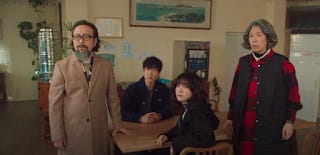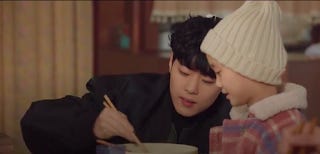The Uncanny Counter (2020 - 21) Entering the Third Act and I Answer the Critics
There are a few good reasons why this show has become a runaway success for OCN. It certainly isn't because the plot says anything new or does anything new with the fantasy-superhero genre. What it does though is make use of familiar elements in an engaging way. And it certainly helps a lot that the actors are good and well-cast. It was always clear to me that this show was a superhero origins story and origins story follow a well-worn trajectory.
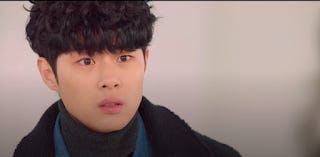
Why am I harping on this? There's been a fair bit of whinging and whining about Episodes 13 and 14 apparently in certain quarters of the internet. I shrug my shoulders like the jaded long-time Asian drama viewer that I am. Because first and foremost I've learnt never to have high expectations about the third act of any K drama (or C drama for that matter). Far too often K dramas suffer from the usual bout of third act self-destructiitis. It's eerily deliberate to the point that it's scary. The answer to that mystery continues to elude me. My dongsaeng seems to be of the charitable view that endings are hard to write... well. I'm sceptical because when I am awed by masterpieces like Prison Playbook, My Mister, Life on Mars and even minor successes like Mystic Pop-up Bar and 18 Again... I pose the obvious question... "Why can't they all do this all of the time?"
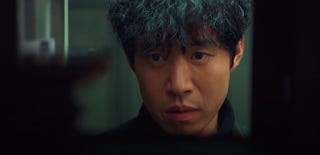
Perhaps I'm in a bit of a holiday fog, but I don't feel like there's anything really terrible about the last couple or even the last few episodes of Uncanny Counter. I'm not seeing the plot holes, or feeling the drag or even frustrated over the so-called repetitiousness of good vs evil encounters. Maybe I'm a creature from the dinosaur age from a different era when people used to get their escapist fixes from Tom and Jerry, Road Runner vs Wile E Coyote or any number of Loony Tunes foes. (Remember them?) These were perpetual cosmic existential battles that played out over and over and over and over... etc... again on our screens. But that was part of my childhood staple. I offer it as an explanation for the disconnect I feel when I read such comments. To me there's a difference when the bad guys elude justice in preparation for another confrontation because the bad guys aren't weaklings.
We used to call this sort of back and forth a cat and mouse game -- probably in honour of a particular adversarial duo of feline and rodent previously mentioned. I suppose some are sick of the Mayor-Taesin mob. That's actually understandable. I am deeply sympathetic. Very much so. Each time they emerge victorious from a skirmish, I have an incredible urge to punch their smug mugs myself except now that they're either in detention or dead. (Although Noh Chang-gyu did provide some laughs so he will be missed) Which should get a resounding "yay" from all of us.
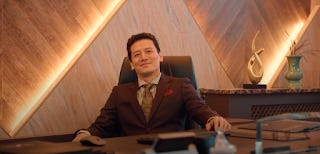
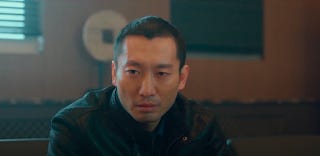
The good guy, to their credit did try at the start to do things through the proper channels and they kept coming up against brick walls because the Jungjin villains were just too ingrained in the system, too well-connected to be demolished in one fell swoop. And that doesn't include baddies of the incorporeal kind. The insatiable black smokey types. There is the expectation that villains fight back. But because they're villains with resources and connections at their disposal they don't care how they do it (ie. they fight dirty), they also bring out the bigger guns when they feel the need to.
No doubt that SK dramas love their corruption tropes and tearing politicians apart. I get that. They're a great punching bag in countries that still enjoy some democracy. I also gather that a lot of international viewers are suffering corruption fatigue for a variety of reasons. But I think we all knew what we were getting from Episode 1 even if we didn't know how it was all coming together. To say at this stage that we were expecting a wider of variety of villains... is odd. It's not really how Koreans do drama business as a rule. Let's look no further than the third act of A Korean Odyssey as a point of comparison.
There was a lot of criticism about how quickly Mun got back his Counter privileges... well... why not? From the perspective of the Big People at Yung, stripping him of his powers was something they had to do. They had to make an example out of him. I didn't think it would last long either because they desperately needed him. And he is uncanny. However, from a storytelling perspective, stripping him of his abilities was more than just a punitive gesture. It made him realise some crucial home truths. Losing his abilities was never the end in itself. As far as the primary arc was concerned, it was about him realising the powerlessness from not being able to save the people he cared about because of his recklessness. When we saw him strung up helplessly in that abandoned warehouse, crying his eyes out pleading and sobbing piteously, that was his real punishment. He had drawn unnecessary attention to himself and in so doing had put other people in jeopardy through his actions. That is the lesson that he had to learn. For better or for worse, he is now a member of a team. He has to function now... at all times, power or no power... as a member of the Counter team. His actions had consequences, not just for himself but for his nearest and dearest.
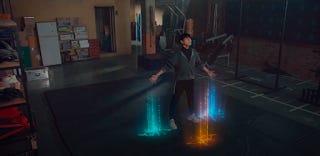
A large chunk of the drama is about (and so it should be) So Mun's growth as a superhero. Being a superhero isn't just about power or even about having a noble agenda -- saving the souls of his parents for instance. It is also about being a particular type of person. In his case, it is about him learning that endangering his own self endangers others. Mun doesn't lack courage or the desire to do good. But those two qualities aren't enough. He needs wisdom. Every time he gains some measure of wisdom, he levels up physically as well as mentally. When he's driven to the brink (like all good superheroes) he taps into something he didn't know that was there and becomes a better version of himself each time. This draws on a core principle of fitness training. And it is a well-understood life hack as well.
I'm also enjoying what the show has been doing with the host-demon duality. Of course it is in the interest of the demon to maintain his survival even if it means killing off the host. The drama differentiates between the humanity of the host (which it has always done in Ji Cheong-sin) and the demons. Sure, their respective agendas intersect at times but not always because the demons' modus operandi is their survival.
So why hasn't the demons done more killing to power up in the past? That's a question I've heard and apparently it's a plothole. Well, I don't agree. The vast majority of people do what's easiest or what they have to when they have to. No one does more than they have to at any given time and perhaps they can't anyway. They might not have the capacity to handle "more" until they have "more". My understanding of the demons here is that they do only what they need to keep hidden. It doesn't appear to me that they're after Jungjin much less world domination. They certainly feed off the negative energy of the host but most remain concealed but will feed on a soul only out of necessity. So it makes sense to me that the Level 4 psionic demon would feel the need to power up against the Counters and Mun in particular to protect itself. It's a typical manichean struggle. The two sides are fairly evenly matched. One side powers up and then the other side feels the need to do the same. When there was no So Mun, Ji Cheong-sin and his demon felt no real threat. He was a hired hitman, his demon went along and helped himself to the leftovers. Ji Cheong-sin is also a completely different kettle of fish to Mayor Shin in terms of greed. He was never ambitious, all he wanted fatherly approval and acknowledgment. That's the point of him returning to the children's home. The human is an orphan who has human desires, the demon doesn't want to be summoned to Yung. Even in Mayor Shin's body we see the same tension. The human is a dad and a greedy politician. The demon has other notions and no earthly attachments. It's only concerned about its own survival.
I've also heard it said that So Mun has turned into a one-note (whiny) hero. "I've got to save my mum and dad" seems to be his mantra. In his defence, it is the reason why he joined the Counters in the first place. And he is 18. The scope of vision is understandably limited. However, while he harps on about his parents, he is a deeply caring person especially where children are concerned. His impulse there is to protect. Moreover, he is driven to try harder and to keep trying because of his parents. He doesn't give up because he can't accept that they're doomed permanently for annihilation and oblivion. That prospect is a key asset that empowers him to persevere and even to go beyond what we know him to be capable of. This story is also very much about him, the uncanny Counter finding himself: Finding who he is and why he belongs where he belongs.
As is consistently seen, So Mun is true to himself. He may be impulsive but his instinct is to protect even when he lashes out. It's clear he has a soft spot for the kiddies and would do anything to ensure their safety. Props to Jo Byeong-gu for making Mun relatable and likeable. His chemistry with his teammates and the little ones is pitch-perfect. Whoever cast him in the role really knew what they were doing.
